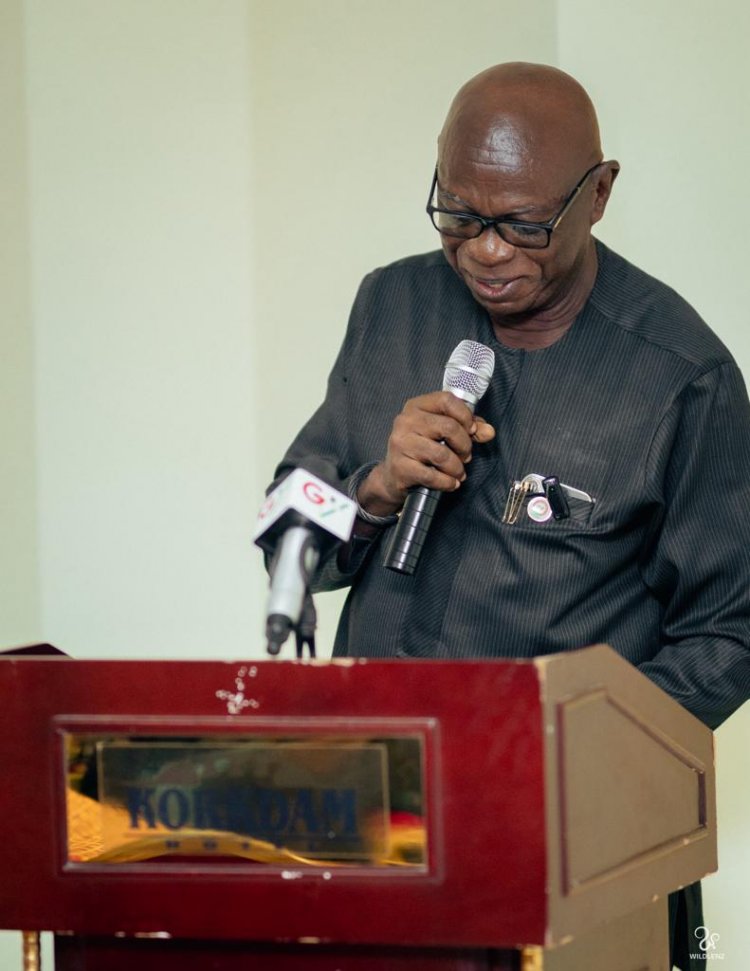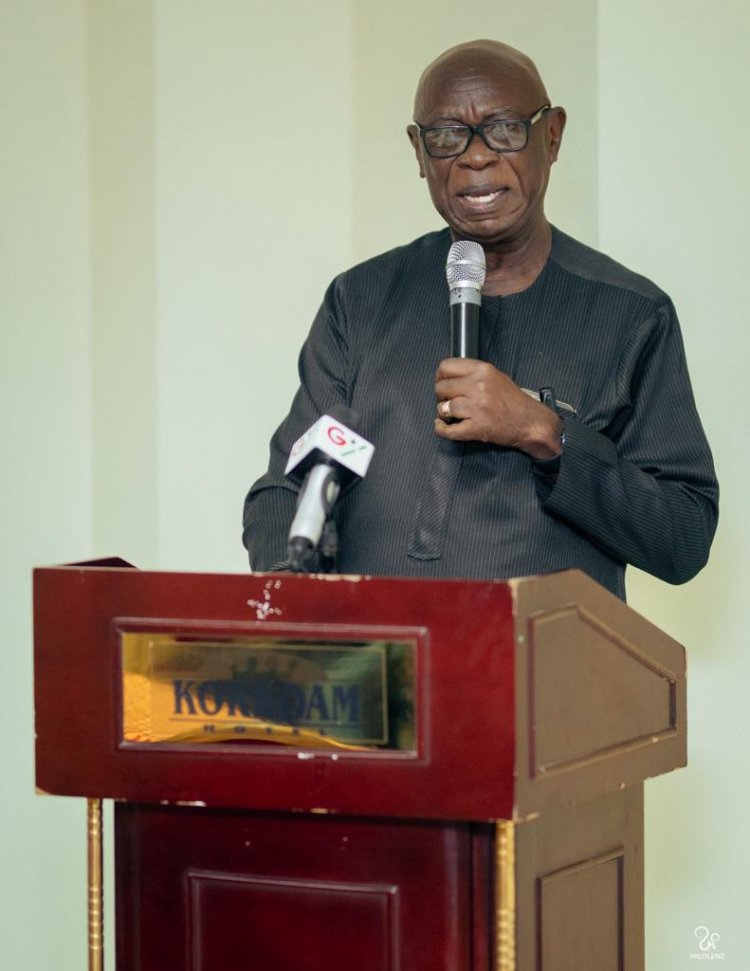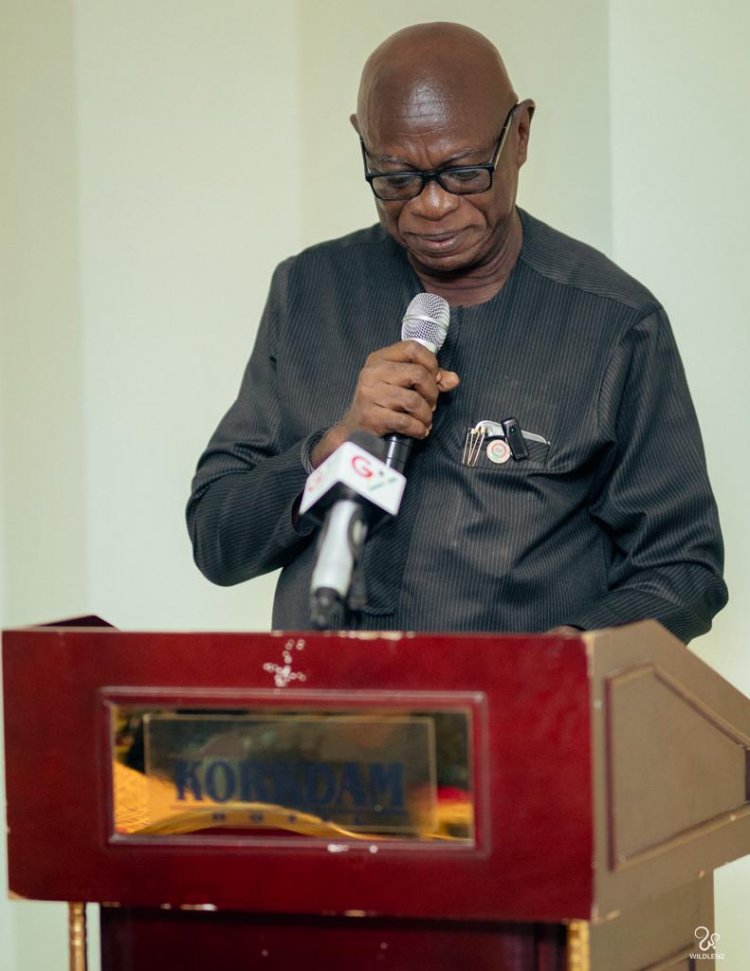GNAAP President Calls On ADR Practitioners To Hold High Standards Of The profession
This, he stressed, would ensure that Alternative Dispute Resolution-ADR, practitioners stay relevant in the society.

THE President of Ghana National Association of ADR Practitioners (GNAAP), Mr Daniel Owusu-Koranteng, has called on ADR practitioners to uphold the high standards of the profession.

This, he stressed, would ensure that Alternative Dispute Resolution-ADR, practitioners stay relevant in the society.
“If you ask me of the relevance of the [Professional Executive Master in Alternative] PEMADR Course to society, my response would be that, as ADR practitioners, you would be relevant wherever there is human interaction in the church, school, family, workplace etc,” he said.

Mr Owusu-Koranteng made the call while addressing graduands of the PEMADR Course, 2024 of the Institute of Paralegal Training Studies (IPLS) in Accra.
He cautioned that when ADR practitioners put away ethics of the profession, which are neutrality, confidentiality, honesty and become corrupt, they tend to become a threat to peace in society.

“As Professional ADR Practitioners, you are expected to have unblemished reputation and dignity, insisting that “the ADR professional practice would expose you to very private and highly confidential information relating to disputants and you are expected to remember that if an ADR Practitioner loses his/her “reputation what remains is bestial,” he underscored.
According to the GNAAP president, the importance of good reputation in the practice of ADR cannot be overemphasised, insisting that “our reputation is immortal because even when we are dead, our reputation, actions and inactions will continue to live after us.”
He said it was sad that values such as honesty, integrity and reputation were being swept under the carpet in the country, adding that “we are paying the price where many people placed in responsible positions do not care about reputation…”
As a professional ADR practitioner with loads of experience, Mr Owusu-Koranteng described honesty, dignity and reputation as an extremely valuable image that defines a person, pointing out that “as Mediators, your reputation can take to unimagined heights.”
Unfortunately, he said, it has become the norm for people to relegate reputation, honesty and dignity to the background in pursuit of wealth.
He explained that this has mainly been the reason for Ghana’s economic challenges despite its enormous natural wealth of gold, diamond, bauxite, timber, oil etc.
“Our political leaders, especially the people we have elected as our representatives to protect the interest of current and future generations, have failed to provide honest leadership to protect our God-given natural wealth and plunged us into bad contracts that have helped foreign interests to siphon our minerals out of the country and left us with the excrements of mining,” he noted.
Mr Owusu-Korateng buttressed his point by citing a few provisions in the Minerals and Mining Act (703), 2006 on bad regulatory framework of the mining sector.
Specifically, he said, in Section 30(2) of the Mining and Minerals Act, “the Minister for Finance, in consultation with the Minister acting on the advice of the Commission may, where the net earnings of a holder of a mining lease from the holder’s mining operations are in foreign exchange, permit the holder of the mining lease to open and retain in an account, an amount not less than twenty-five per cent of the foreign exchange for; the acquisition of spare parts, raw materials, and machinery, debt servicing and dividend payment” among others
“A person found guilty of an offence under this Act for which a penalty has not been provided is on summary conviction liable on first conviction, to penalty of fine not more than the cedi equivalent of US$ five thousand,” he added.
He stressed that Ghana’s resource curse was a reflection of leadership paralysis resulting from “our inability to act in positions of trust based on values of honesty, dignity and high reputation.
To this end, he urged that Ghana needed an urgent moral reformation.

 Freeman Koryekpor
Freeman Koryekpor 



































